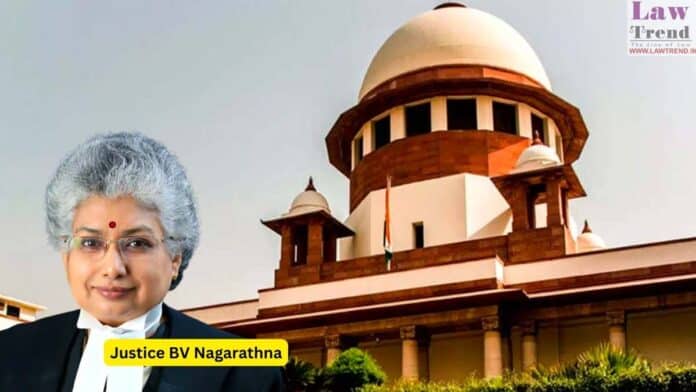In a significant statement from the Supreme Court, Justice BV Nagarathna expressed strong views on the usage of social media by judges, emphasizing that they should avoid platforms like Facebook entirely, especially in terms of commenting on judicial decisions. These comments were made during the hearing of a case involving the termination of two female judicial officers by the Madhya Pradesh High Court, which included issues related to social media postings.
The case, which is being heard by a bench comprising Justice Nagarathna and Justice NK Singh, has highlighted the potential conflicts that arise when judicial officers engage with social media. During today’s proceedings, Senior Advocate and amicus curiae Gaurav Agarwal presented complaints against one of the officers, Sarita Choudhary, who had reportedly made Facebook posts that were considered problematic, leading to her termination.
Justice Nagarathna questioned the appropriateness of judges sharing their views on public platforms, noting, “They should not go to Facebook, these judicial officers… They should not comment on judgments because tomorrow if the judgment is cited, a judge has already expressed one way or the other. It is an open platform… It is as good as saying in public.”
Supporting this stance, Senior Advocate R Basant, who represented Choudhary, agreed that judges should steer clear of posting anything related to their judicial duties on social media. He underscored the need for a clear understanding that judicial roles come with inherent restrictions, stating, “It’s time we have a very very definite understanding that nobody will go on social media… the day you accept judgeship, you know that it comes with all this. You can’t have the best of both worlds.”
Justice Nagarathna also discussed the sacrifices required from judges, indicating that a passion for justice should come with a willingness to accept certain limitations on personal freedom. “If you want freedom, you cannot be… don’t accept elevation to the High Court and say, we value our freedom and we cannot be at restraint,” she said.




